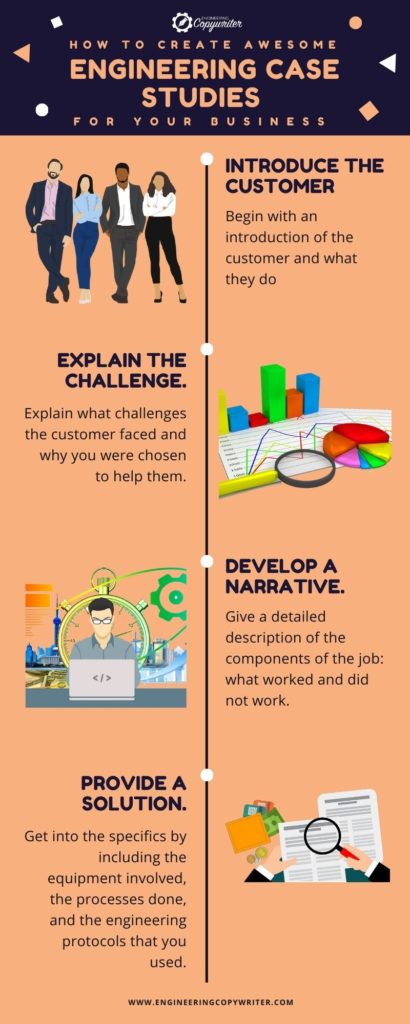When it comes to determining a purchasing decision, engineers favor information with extensive details. They include schematics, case analysis, and research / white papers the greatest. A market survey of 1,361 engineers and some specialized workers was used to compile a study. Aircraft, automobiles, power, technical services, electronics, and metallurgy were among the industries that responded. When it comes to purchasing judgments, 73 percent of respondents think datasheets are extremely useful. 41 percent say research papers, while 40 percent say technical papers are extremely useful.
Engineers said they’re more prone to provide their details through a contact form. They gain entrance to specialized resources like white papers and engineering sketches. Engineers prefer specialized partnerships to public social media. This happens in engineering innovations, industry changes, and goods. In acquiring equipment and operations, engineers have a significant role. They’re the ones who put together a case to persuade managers to spend money. They are also the ones who search for products when they are required.
So what do engineers look for before buying a product? Here’s all you need to know.
Engineers look for their visual language
What are essential graphical representations that engineers use to interact? Diagrams, infographics, schematics, designs, engineering drawings, algebra, and theorems are all examples of visual representations of data. When communicating to engineers, you need to employ these graphs and charts for several objectives. Engineers, for starters, are eligible to fully comprehend them. Furthermore, these pictures tell the engineer that it is engineering content, not marketing fluff. The finest images are ones that are relevant in the engineer’s field of expertise. Wiring diagrams are popular among electrical specialists. Workflows are familiar territory for software engineers. Structured charts are used by network engineers. Understand your core viewer’s visual style. Have the designer incorporate these patterns and imagery across your white paper, articles, web copy, and brochures.
Engineers look for technical facts and not advertisements
Engineers, for the biggest part, prefer technical facts over advertisements. Engineers get a poor impression of advertising. They require a lot of persuasion from people in the advertising industry. They like to assume that professionals are never swayed by advertising copy. They assume their choices are founded on scientific truths that are past the comprehension of a copywriter.
Engineers are intrigued by terminologies
Terminology should be avoided according to experts giving corporate writing courses. It obstructs effective communication. It’s especially true for communicating technical terms to non-technical groups like the wider populace or executive staff.
But, when speaking to engineers, scientists, as well as other specialized groups, however, terminology can significantly improve communication.
Terminologies seem to be useful since they demonstrate to the readers that you have been conversant in the formal language. You would like the audience to think you’re like them whenever you create direct interaction copy, wouldn’t you? Isn’t it true that understanding an engineers’ common language accomplishes this? Engineers aren’t the only ones that have a hidden language for business communication. Terminology is despised by professionals across all disciplines, but it is adored personally. For example, outside direct salespeople, who knows what the “gizmo” is? As well as why utilize such a term if not to emphasize the importance of the job?
Engineers find information using search engines
Engineers like to get facts from Google initially, then from a reputable trade journal, white paper, or informative content from authoritative companies. Depending on the information, one implication would be that producers should create helpful material that tops the list on Google. Engineers tend to acquire content through the manner of brief written pieces (71 percent), closely by video stream (44 percent). Source: mmmatters Only 31percent favor webinars over other forms of content consumption.
Engineers detest the consumer viewpoint
Engineers are more responsive to a precise technical approach. They prefer it to a savvy consumer-style advertisement. Engineers react positively to communications that regard them as competent technical professionals seeking engineering solutions. That’s why this widely affects their purchasing decision.
Engineers are more interested in the functions and operations than the advantages
People have been educated in marketing schools that advantages are where it’s at. They say functions are insignificant.
Engineers, on the other hand, have to understand a products’ qualities so they don’t make a purchasing decision easily. They check efficiency properties, performance rankings, power handling, and professional parameters. This is done by having to conduct an informed purchase. When marketing to genuine component manufacturers, qualities must be highlighted. The engineer purchasing transistors for utilization in the gadget he is developing, for instance, doesn’t have to be persuaded of the merits of transistors. He is fully aware of its advantages. The key priority is if the transistor can deliver the required quality and durability. It must also adhere to his criteria for power, amperage, resistance, as well as other factors.
The engineer’s buying decision is logical rather than sentimental
The majority of marketing reading materials emphasize that effective content appeals to feelings initially and logic afterward. The technical audience, on the other hand, is frequently the polar opposite. Instead of an unnecessary expense, the acquisition is referred to as a deliberate purchase. Such that, a customer carefully considers the information, conducts evaluations, and purchases the thing that perfectly suits his/her needs. We can see that the engineer’s purchasing decision is influenced by logic rather than emotions.
Conclusion
Engineers make very careful and consider product selections. They look for their visual language. They want technical facts. They love terminologies. They research using search engines, prioritizing creativity, functionality, and logical reasoning.
If you need help putting together regular informative blogs, or white papers that speak directly to engineers – let our team of engineering writers help. Get in touch today.






